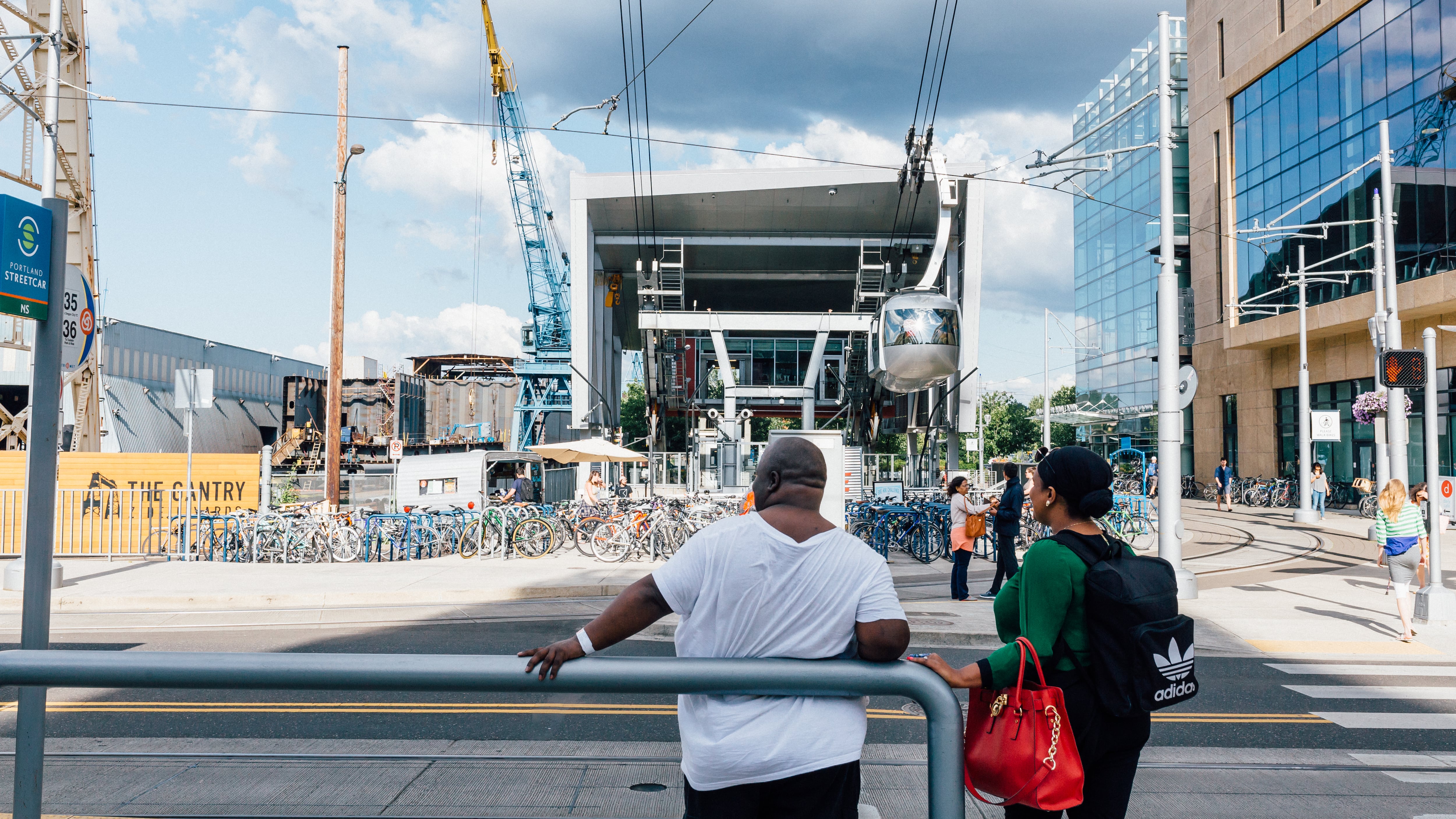THE ISSUE
Last week, the Portland City Council took the first steps toward a new set of regulations for developers building in flood-prone areas.
The context is complicated. In 2009, local environmental groups sued the Federal Emergency Management Agency, alleging that its floodplain insurance program violated the Endangered Species Act because it didn’t adequately protect salmon. (Preserving floodplains is critical for young salmon to survive migration.) In response, the National Marine Fisheries Service issued a 2016 ruling that requires a new floodplain plan from the city.
But those same environmental groups are deeply unhappy with how the city’s new floodplain plan is shaping up, saying it’s been significantly watered down over the past year to appease developers, particularly those along the South Waterfront. The effect of a weak plan, environmentalists argue, is that the city is failing to adequately protect salmon habitat in the Willamette River when it permits construction on its banks.
A particular sticking point for environmentalists in the draft floodplain plan—which goes to the City Council for a vote in October—is an existing, long-standing exemption that allows developers along the South Waterfront to ignore floodplain regulations that other developers must adhere to.
“There is no legal basis for exempting sites from these regulations, and doing so sets a bad precedent that will likely get repeated,” says Bob Sallinger, urban conservation director for Willamette Riverkeeper.
Sallinger says his organization believes it has strong legal grounds to sue the city over the waterfront projects if the plan, as currently drafted, is approved. “We believe that if they proceed forward with the plan as currently drafted, it will put the city in a position of projects being vulnerable to legal challenge. And we’re not inclined to be patient any longer.” (Willamette Riverkeeper is currently suing FEMA, alleging the agency is dragging its feet in complying with the 2016 floodplains order.)
The projects at stake are two major developments expected to commence in the near future along the South Waterfront: Oregon Health & Science University’s undeveloped waterfront land and Zidell Yards.
THE OFFICIAL
It was City Commissioner Carmen Rubio who decided not to drop the exemption.
Rubio is the commissioner in charge of the Bureau of Planning and Sustainability. She inherited the Planning Bureau earlier this year and took on the work of the floodplain regulations—a job that puts her in the middle of a tug of war between developers and environmentalists.
Rubio disputes Willamette Riverkeeper’s contention that she bowed to developers, and says she entrusted staff in the two bureaus that touch the issue—Planning and Sustainability, and Development Services—to create a plan that balanced the city’s housing production goals and environmental concerns. Rubio also says there was no interest from any other city commissioners’ offices to end the exemption.
“I don’t believe that this was watered down at all,” Rubio tells WW. “The directive from me to my bureau directors was, these two things are important and I believe in them, and let’s find the balance. I obviously care about climate change. I’m also in this role where we have to really look at how we can move the ball down the field” with housing.
Last week, in response to pushback from environmentalists, Rubio and Commissioner Mingus Mapps made an amendment to the plan that directs the city’s lobbyists to pursue funding from the state for floodplain mitigation efforts.
Sallinger is unhappy with the compromise: “It shifts the costs of mitigating for floodplain impacts from developers to the taxpayers.”
Rubio says she believes the amendment was a good one: “That’s all I have to say about that.”
WHY IT MATTERS FOR THE MAYOR’S RACE
Rubio ran for City Council in 2020 on a platform that included advancing the city’s environmental goals. But now Rubio finds herself on the opposite side of environmental groups that strongly supported her candidacy.
There’s an obvious parallel between Rubio’s dilemma and the one facing Gov. Tina Kotek, who has antagonized environmental groups by considering an exemption that would allow developers to build on wetlands and skirt tree codes in order to meet her housing goals.
Rubio’s straddling a fine line—especially if she runs for mayor next year, which she’s rumored to be strongly considering. She doesn’t want to annoy her base, which cares deeply about mitigating the effects of climate change by any means possible. And she doesn’t want to alienate developers, whose support (or at the very least neutrality) is crucial if she wants to win the mayoral race next fall.
Yet Rubio maintains the issue isn’t political. “This is not a political question,” she says. “This is truly, how do we meet the mission and intent of compliance for the good of our environment, and how do we also continue to make good on our goal about accelerating housing production?”

